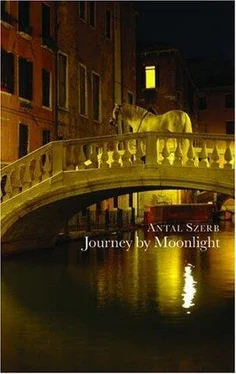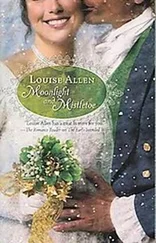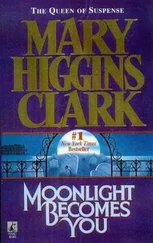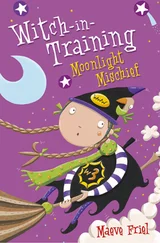“Run. Otherwise I can’t sleep. I go to the river bank and run up and down beside the Tiber. The police know me and they leave me alone. It’s just like at home. Come. On the way I’ll tell you what I’m working on at present. It’s really sensational. You remember that Sophron fragment that came to light a little while ago … ”
By the time he had finished his exposition they were standing outside the Falconieri building.
“But going back to the question of what you should do,” he said unexpectedly. “The only difficulty is starting. You know what? Tomorrow I’ll get up a bit earlier for your sake. Come for me, let’s say, at eleven-thirty. No, twelve. I’ll take you to the Villa Giulia. I bet you haven’t been to the Etruscan Museum, right? Well, if that doesn’t give you the urge to take up the old threads, then you really are a lost man. Then you better had go back to your father’s factory. So, God be with you.”
And he hurried into the darkened building.
THE NEXT DAY they did indeed visit the Villa Giulia. They looked at the graves and the sarcophagi, with their lids supporting terracotta statues of the old Etruscan dead enjoying their lives — eating, drinking, embracing their spouses, and proclaiming the Etruscan philosophy. This, being wise enough not to have developed literature in the evolution of their cultural life, they never committed to writing, though of course it can be read unmistakably on the faces of their statues: only the present matters, and moments of beauty are eternal.
Waldheim pointed out some broad drinking bowls. These were for wine, as the inscription proclaimed: Foied vinom pipafo, cra carefo .
“Enjoy the wine today, tomorrow there will be none,” Waldheim translated. “Tell me, could it be expressed more succinctly or truly? That statement, in its archaic splendour, is as definitive and unshakeable as any polygonic city-walls or cyclopean buildings. Foied vinom pipafo, cra carefo .”
Whole sets of figurines were displayed in a glass case: dreamy-eyed men, being led onwards by women, and dreamy-eyed women led, or clutched at, by satyrs.
“What are these?” Mihály asked in amazement.
“That’s death,” said Waldheim, and his voice took on an edge, as it always did when some serious academic issue arose. “That’s death. Or rather, dying. They’re not the same thing. Those women luring the men on, and those satyrs clutching at the women, are death-demons. Are you with me? The male demons take the women, and the female demons the men. Those Etruscans were perfectly aware that dying is an erotic act.”
A strange frisson shot through Mihály. Could it be that others had known this, and not just himself and Tamás Ulpius? Was it possible that this most basic element in his own sense of life was once something that, for the Etruscans, could be expressed in art, a self-evident spiritual truth, and that Waldheim’s brilliant scholarly intuition had been able to understand that truth, just as he had so many of the mysteries and horrors of ancient belief?
The question so troubled him that he said not a word, neither in the museum nor on the tram going back afterwards. But that evening, when he again called on Waldheim, and had been lent courage by the red wine, he managed to ask, taking care not to let his voice tremble: “But tell me, how did you mean ‘dying is an erotic act’?”
“I meant it just as I stated it. I’m not a symbolist poet. Dying is an erotic process, or if you like, a form of sexual pleasure. At least in the perception of ancient cultures like the Etruscans, the Homeric Greeks, the Celts.”
“I don’t understand,” said Mihály disingenuously. “I always thought that the Greeks had a horror of death. Surely the afterlife had no consolations for the Homeric Greeks, if I remember my Rodhe correctly. And the Etruscans, who lived for the fleeting moment, would have feared it even more.”
“That’s all true. These peoples probably feared death even more than we do. Our civilisation presents us with a marvellous mental machinery designed to help us forget, for most of our lives, that one day we too will die. In time we manage to push death out of our consciousness, just as we have done with the existence of God. That’s what civilisation does. But for these archaic peoples nothing was more immediately apparent than death and the dead, I mean actual dead people, whose mysterious para-existence, fate, and vengeful fury constantly preoccupied them. They had a tremendous horror of death and the dead. But then of course in their minds everything was more ambiguous than it is for us. Opposites sat much closer. The fear of death and the desire for death were intimately juxtaposed in their minds, and the fear was often a form of desire, the desire a form of fear.”
“My God, the death-wish isn’t some archaic thing, but eternally human,” said Mihály, fending off his real innermost thoughts. “There always were and always will be people worn out and weary of life, who long for the release of death.”
“Don’t talk rubbish, and don’t pretend you don’t understand me. I’m not talking about the death-wish of the weary and the sick, or potential suicides, but about people in the fullness of their life, people who in fact because their lives are so fulfilled yearn for death as for the greatest ecstasy, as in the common phrase, mortal passion. Either you understand this or you don’t. I can’t explain it. But for those ancient people it was self-evident. That’s why I say that dying is an erotic act. Because they yearned after it, and in the final analysis every desire is sexual at base, or rather what we call erotic, in which the god Eros, that is to say, yearning or desire, exists. A man always yearns after woman, according to our friends the Etruscans, so death, dying, must be a woman. For a man it was a woman, but for a woman an importunate male satyr. That’s what those figures tell us, the ones we saw this afternoon. But I could show you other things too: portraits of the death-hetaira on various ancient reliefs. Death is a harlot tempting young men, and she is depicted with a hideously vast vagina. And this vagina probably means something more again. We come from it and we return to it, that’s what they are telling us. We are born as the result of an erotic act and through a woman, and we have to die through an erotic act involving a woman, the death-hetaira, the great inseparable and contrary aspect of the Earth Mother … So when we die we are born again … do you follow? Actually this is what I was saying the other day, in my lecture at the Accademia Reale entitled Aspetti della morte . It was a great success with the Italian newspapers. It just so happens I have a copy with me. Hang on a moment … ”
Mihály looked around with a shiver at the cheerful chaos of Waldheims’s room. It reminded him subtly of that other room, in the Ulpius house. He was looking for a sign, something specific to focus … perhaps the near-presence of Tamás, Tamás whose inner thoughts Waldheim, with his brilliant scholarly objectivity and clarity, had expressed here, this summer night. Waldheim’s voice was again edged with that sharp, inspired quality it always took on when he talked about the ‘divine essence’. Mihály rapidly downed a glass of wine and went over to the window for a breath of air. Something oppressed him deeply.
“The death-yearning was one of the strongest sources of myth,” Waldheim continued, talking now rather to himself than to Mihály in his excitement. “If we read The Odyssey aright, it speaks of nothing else. There are the death-hetaira, Circe, Calypso, who from their caves lured men on to the journey towards the happy islands and never let them go; the whole empire of death, the Lotus-Eaters, the land of the Phaia. And who knows, perhaps the land of the dead was Ithaca itself? Far to the west … the dead are always sailing by day into the west … and Ulysses’s nostalgia for and his journey back to Ithaca perhaps represents the nostalgia for non-being, signifying rebirth … Perhaps the name Penelope actually carries its latent meaning of ‘duck’, and originally was the spirit-bird, but for the time being I can’t be sure of that. You see this is the sort of idea that really should be looked into without delay. And you … You could do the groundwork for a section, so that you can get into the professional way of doing things. For example, it would be really interesting if you wrote something about Penelope as the spirit-duck.”
Читать дальше












